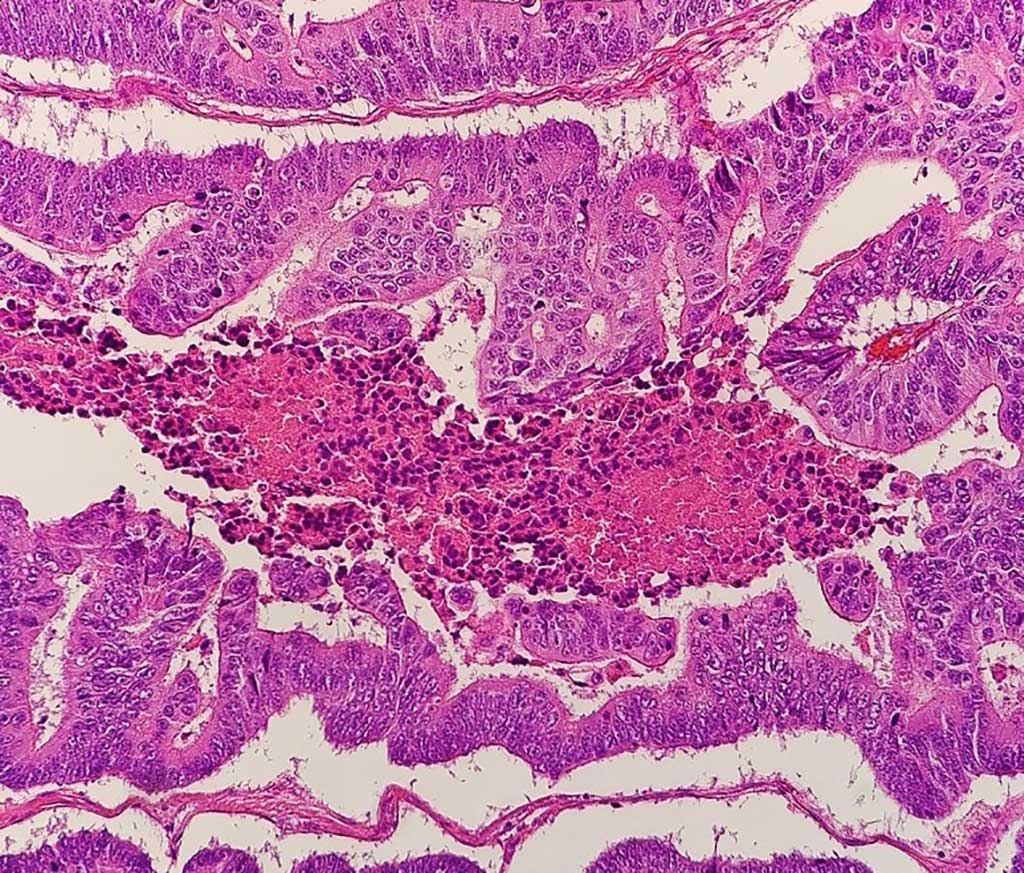Plasma or Urine Liquid Biopsy Tests May Guide Colorectal Cancer Treatment
By LabMedica International staff writers
Posted on 23 Feb 2021
A recent paper suggested that liquid biopsy examination of blood or urine could aid in evaluating the effectiveness of therapy for colorectal cancers that had begun to metastasize beyond the site of the original tumor.Posted on 23 Feb 2021
While a small number of liquid biopsies have been approved by the [U.S.] Food and Drug Administration, mostly for lung, breast, ovarian, and prostate cancers, none has been approved for colorectal cancer. In this light, investigators at the Washington University School of Medicine (St. Louis, MO, USA) sought to determine whether liquid biopsy examination of cell free tumor DNA (ctDNA) in plasma or urine could detect molecular residual disease (MRD) in patients with oligometastatic colorectal cancer (CRC) after neoadjuvant chemotherapy on the day of therapeutic surgery in order to guide personalized adjuvant treatment.

Image: Micrograph of a colorectal adenocarcinoma (Photo courtesy of Wikimedia Commons)
The investigators applied AVENIO targeted next-generation sequencing to plasma, tumor, and urine samples acquired on the day of curative-intent surgery from 24 prospectively enrolled patients with oligometastatic CRC. The Roche (Basel, Switzerland) AVENIO ctDNA Targeted Kit is a next-generation sequencing (NGS) liquid biopsy assay that contains 17 genes, including those in U.S. National Comprehensive Cancer Network (NCCN) Guidelines. The Targeted panel is specially optimized for lung cancer and colorectal cancer (CRC).
Plasma and urine ctDNA MRD were correlated with tumor cells detected in the surgical specimen, and adjuvant treatment strategies were proposed based on ctDNA-inferred tumor mutational burden (iTMB) and targetable alterations.
Results revealed that tumor-naive plasma ctDNA analysis detected MRD at a median level of 0.62% with 95% sensitivity and 100% specificity, and 94% and 77% sensitivity when only considering patients treated with neoadjuvant chemotherapy and putative driver mutations, respectively. In urine, ctDNA MRD detection specificity remained high at 100%, but sensitivity decreased to 64% with median levels being 11-fold lower than in plasma. Personalized ctDNA analysis revealed that 81% of patients might have been candidates for adjuvant immunotherapy based on high iTMB or targeted therapy based on actionable PIK3CA (phosphatidylinositol-4,5-bisphosphate 3-kinase) mutations.
"Being able to measure response to early chemotherapy without prior knowledge of the tumor's mutations is a novel idea and important for being able to determine whether the patient responded well to the therapy," said senior author Dr. Aadel A. Chaudhuri, assistant professor of radiation oncology at Washington University School of Medicine. "This can provide guidance on how to treat oligometastatic disease. For example, if the liquid biopsy indicates that a patient responded well to the early chemotherapy, perhaps they should be offered the possibility of more surgery, which could potentially cure their disease. But if they did not respond well, it is likely the cancer is too widespread and cannot be eradicated with surgery, so those patients should receive more chemotherapy to control their disease."
"The levels of circulating tumor DNA that we were able to measure in urine were lower than what we measured in blood, but this is still a proof of concept that it is possible to measure residual disease in a nonurinary cancer in this totally noninvasive way," said Dr. Chaudhuri. "We will need to develop more sensitive techniques to detect colorectal tumor DNA in urine to make this a useful clinical test. But this is a promising start."
The colorectal cancer liquid biopsy study was published in the February 12, 2021, online edition of the Journal of Clinical Oncology Precision Oncology.
Related Links:
Washington University School of Medicine
Roche













